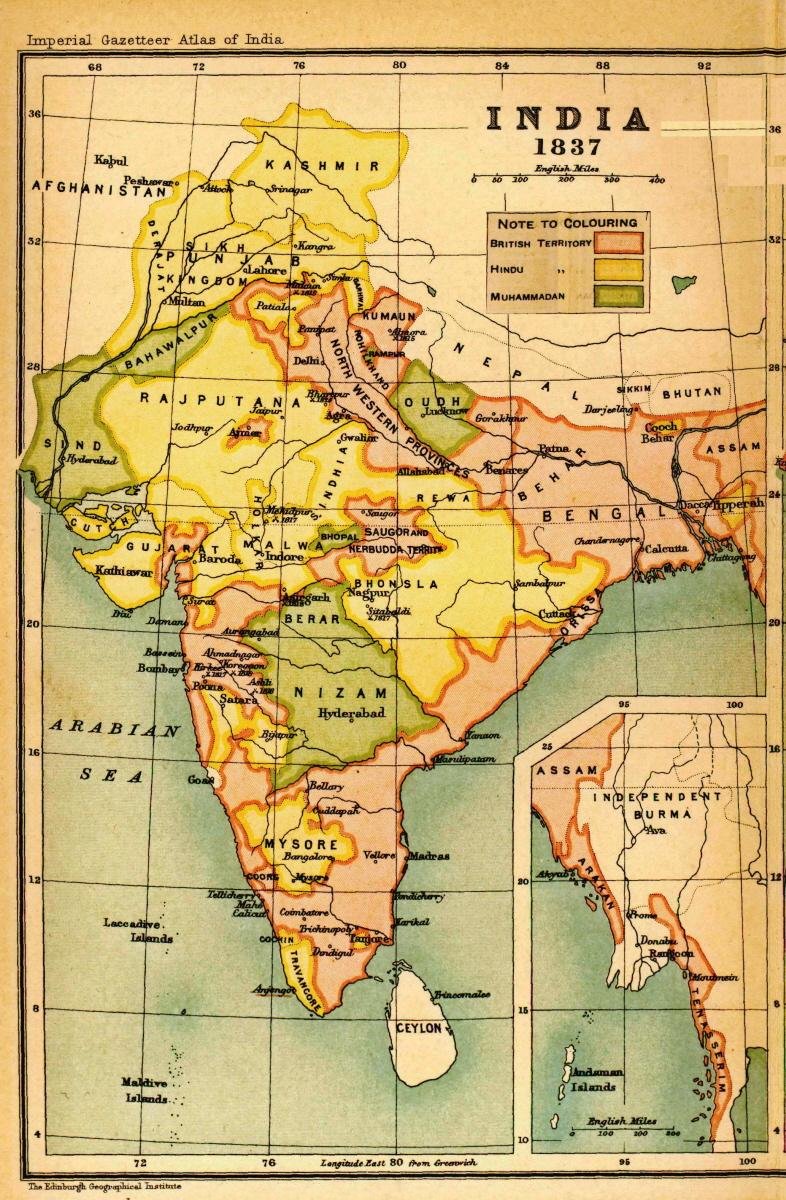The following is mostly based on A Review of Public Instruction in the Bengal Presidency, from 1835 to 1851, by James Kerr (1852).
Macaulay's Minute on Education was dated February 2, 1835. On March 7, 1835, Lord Bentinck issued the resolution that the funds that had been spent on oriental education cease, and those funds be devoted to English education only. After that, the President of the Educational Committee, a Mr. Shakespeare, resigned his office, and Macaulay was appointed to succeed him. Macaulay remained President from 1835 through 1837 till he left India in December 1837. From 1838 into 1842, the president was Macaulay's friend, Sir Edward Ryan.
Kerr tells us -
At the point where the above passage appears, Kerr has just finished telling us that English literature and science were introduced in all institutions and
On this issue, Lord Auckland thought that once suitable vernacular class books had been prepared, the compulsory English policy could be relaxed. There is also this:
Through Kerr and elsewhere, we find that the native demand for English was there only where there was frequent contact with Europeans. E.g., Kerr quotes the Educational Report for 1843-44:
Macaulay's Minute on Education was dated February 2, 1835. On March 7, 1835, Lord Bentinck issued the resolution that the funds that had been spent on oriental education cease, and those funds be devoted to English education only. After that, the President of the Educational Committee, a Mr. Shakespeare, resigned his office, and Macaulay was appointed to succeed him. Macaulay remained President from 1835 through 1837 till he left India in December 1837. From 1838 into 1842, the president was Macaulay's friend, Sir Edward Ryan.
Kerr tells us -
At an early stage of the proceedings of the new Committee, great misapprehension existed in various quarters in regard to the extent to which the vernacular languages were to be taught in the Government seminaries. Some were of the opinion that according the most obvious interpretation of the Government Resolution, the vernacular languages were to be entirely excluded and all the funds were strictly to be employed "on English education alone."
The General Committee promptly corrected this error. The following clear statement of their views was published in the annual report for 1835.
"The General Committee are deeply sensible of the importance of encouraging the cultivation of the vernacular languages. They do not conceive that the order of the 7th of March precludes this and they have constantly acted on this construction. In the discussions which preceded that order, the claims of the vernacular language were broadly and prominently admitted by all parties, and the question submitted for the decision of Government only concerned the relative advantage of teaching English on the one side and the learned eastern languages on the other."
It was added that the phrases "English education", "English literature and science" were not set up in opposition to vernacular education, but in opposition to oriental learning taught through the medium of Sanskrit and Arabic.Sounds very nice, but what did really happen?
At the point where the above passage appears, Kerr has just finished telling us that English literature and science were introduced in all institutions and
For the next four or five years, the General Committee would listen to no modification of the system. If separate vernacular classes were proposed, such could not be allowed; it was contrary to the Resolution of the Government, adopted after mature deliberation.So, what did really happen? Do we believe Kerr's report from 1852, or Macaulay's Committee's report of 1835? I think the tie-breaker is available, via what Kerr subsequently gives us, Lord Auckland's minute of November 24, 1839. One of the issues brought to Auckland's attention was "the abolition of classes, wherever they existed, for separate instruction in the vernacular tongue; and generally, the preference given to English over the vernacular language as the principal medium of instruction. It was contended that a little vernacular only was taught, as "an adjunct" to instruction in English."
On this issue, Lord Auckland thought that once suitable vernacular class books had been prepared, the compulsory English policy could be relaxed. There is also this:
"On the whole, further experience, his Lordship thought, was needed. Two great experiments were in progress, one in Bengal through English, and the other in the Bombay Presidency through the vernacular language. Let both experiments be "thoroughly developed" and the results be observed."Comparing Maharashtra (the Bombay Presidency) with Bengal-Bihar-Orissa (the Bengal Presidency) in the modern age, one would have to concede that the Bombay Presidency is ahead as far as development goes. Whether it is because of century-old education policy, who knows? but when someone asks, how did Macaulay turn out, 180 years later?, one has to note such things.
 |
| Wiki map of India, 1837 |
Through Kerr and elsewhere, we find that the native demand for English was there only where there was frequent contact with Europeans. E.g., Kerr quotes the Educational Report for 1843-44:
"There exists much less encouragement for the study of English in the North Western Provinces than in Bengal. There are few European residents. There is no wealthy body of European merchants transacting their business in the English language. There is no Supreme Court where justice is administered in English. All public business, except correspondence between English officers, is carried on in the vernacular language. There are therefore fewer means of diffusing a taste for learning English."So, it seems there were very practical reasons for Indians to want to learn English in Bengal, and probably much less the bombastic ideal of absorbing European Enlightenment.